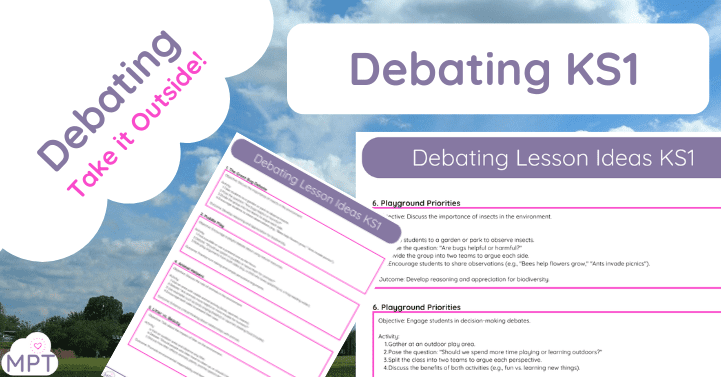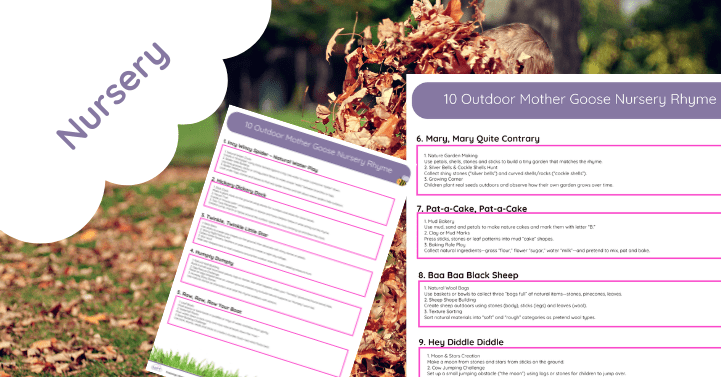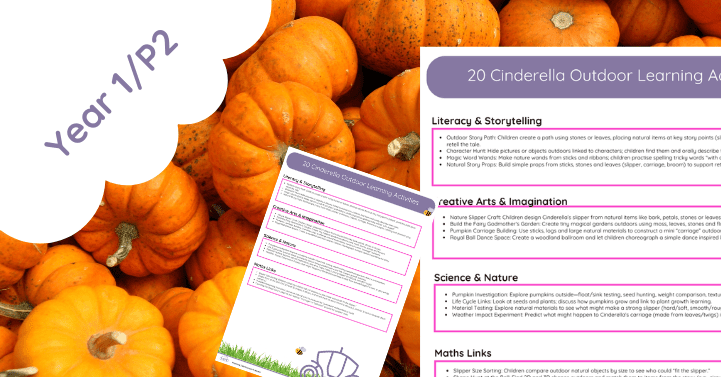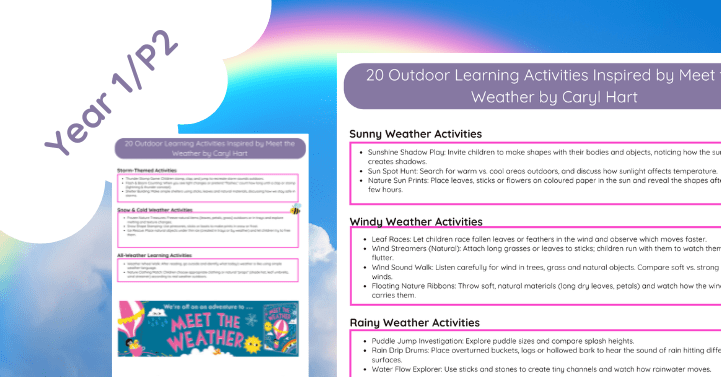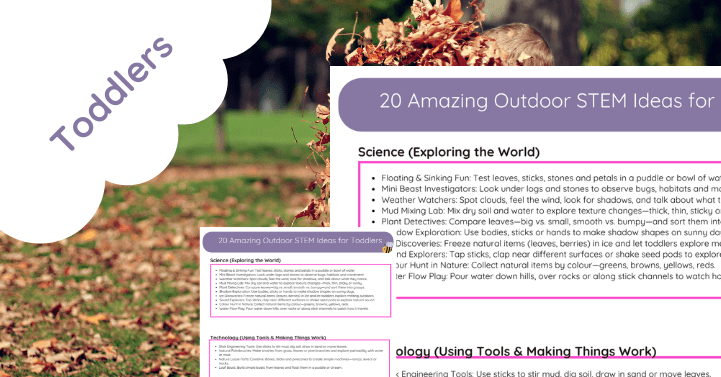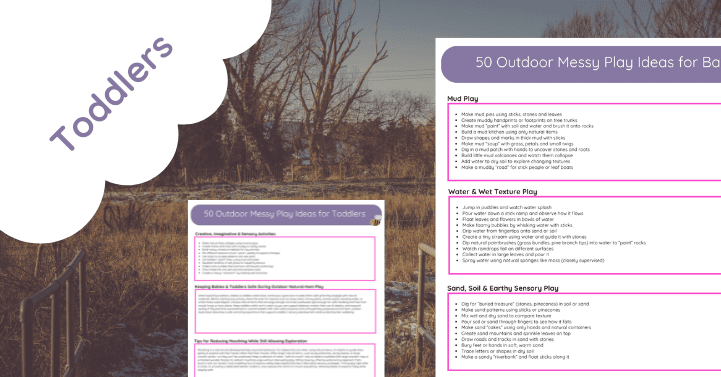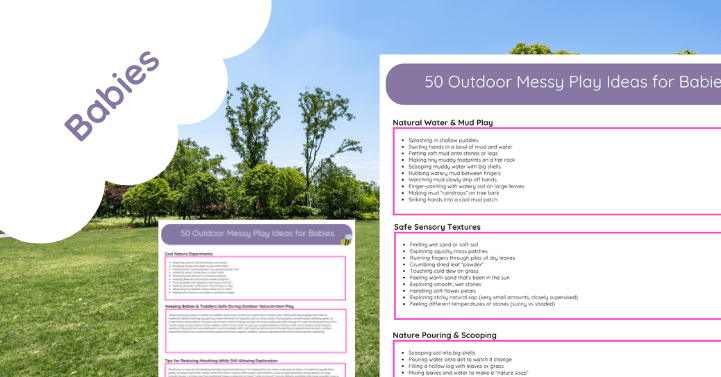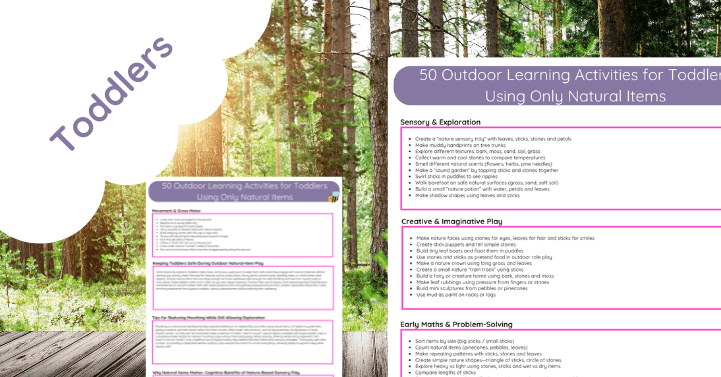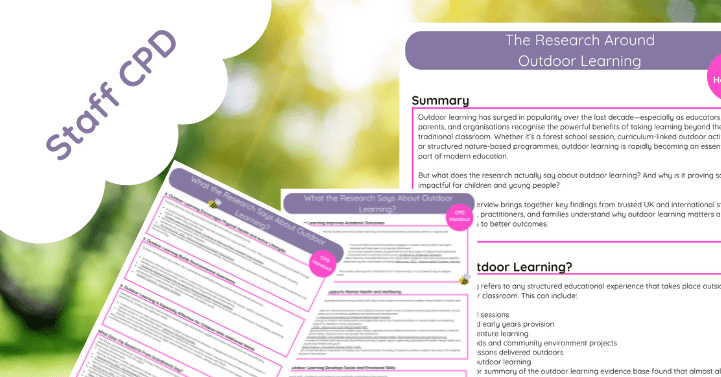Debating Lesson Ideas for KS1: Fun and Engaging Activities for Young Thinkers
Product Description:
Empower young minds with Debating Lesson Ideas for KS1, a collection of creative, age-appropriate activities designed to introduce children to the world of debating in a fun, interactive way. These lessons are packed with engaging topics and easy-to-follow instructions, perfect for teachers looking to foster critical thinking, communication skills, and teamwork in an outdoor or classroom setting.
Whether discussing the role of animals, the beauty of nature, or the importance of sharing, these lessons are tailored to ignite curiosity and develop confidence in expressing ideas.
What’s Inside?
- 8 Ready-to-Use Debating Lessons:
- Covering exciting and relatable topics like “Should we splash in puddles?” and “Should we feed wild animals?”
- Step-by-Step Guidance:
- Simple, clear instructions to help you facilitate engaging and productive debates.
- Outdoor and Classroom Adaptability:
- Lessons are designed to work in a variety of settings, encouraging exploration and discussion.
- Interactive and Inclusive Activities:
- Promote turn-taking, active listening, and teamwork.
Key Benefits:
- Encourage Critical Thinking: Help children develop reasoning skills by presenting arguments for and against relatable scenarios.
- Build Communication Skills: Teach students to express their ideas clearly and listen to others’ perspectives.
- Foster Empathy: Explore ethical dilemmas and real-world connections to nurture understanding and respect.
- https://themuddypuddleteacher.co.uk/10-gunpowder-plot-ideas/
Engaging students in debates amidst natural settings not only enhances their critical thinking and communication skills but also fosters a deeper connection with the environment. Taking debates outdoors provides a dynamic backdrop that stimulates creativity and encourages active participation. Here’s how you can effectively integrate nature into your debating sessions:
1. Select Thought-Provoking, Nature-Centric Topics
Choosing debate topics related to the environment can make discussions more relevant and engaging. Consider subjects like:
- Should national parks prioritize conservation over public access?
- Is it ethical to prioritize human needs over wildlife habitats?
These themes encourage students to explore real-world issues and develop informed opinions.
2. Utilise Natural Settings to Inspire Discussion
Conducting debates in outdoor environments, such as parks or nature reserves, can enhance the learning experience. The natural surroundings serve as a living classroom, providing tangible examples to support arguments. Research indicates that outdoor learning environments can improve student engagement and academic performance.
3. Incorporate Nature-Based Activities to Build Context
Before initiating debates, engage students in nature walks or observation exercises to gather insights and evidence. Activities like scavenger hunts or bio blitzes can deepen their understanding of ecological topics and provide concrete examples for their arguments.
4. Emphasize the Benefits of Outdoor Learning
Outdoor education offers numerous advantages, including enhanced cognitive skills, improved mental health, and increased motivation. By integrating debates into outdoor settings, educators can leverage these benefits to create a more effective and enjoyable learning experience.
5. Foster Critical Thinking Through Environmental Debates
Debating environmental issues encourages students to think critically about human impact on nature and consider sustainable solutions. This approach aligns with educational goals of promoting environmental awareness and responsibility.
6. Encourage Collaboration and Communication
Outdoor debates require students to articulate their thoughts clearly and listen to opposing viewpoints, enhancing their communication skills. The collaborative nature of debates also fosters teamwork and social interaction.
7. Reflect on the Experience
After the debate, facilitate a reflection session where students can discuss what they learned and how the outdoor setting influenced their perspectives. Reflection helps consolidate learning and encourages personal growth.
8. Access Resources for Outdoor Debating
Several organizations offer resources and activity ideas for conducting educational sessions outdoors. For instance, Girlguiding provides a variety of outdoor activity ideas that can be adapted for debating sessions.
Incorporating debates into outdoor settings enriches the educational experience by combining critical thinking with environmental appreciation. This approach not only develops essential skills but also instills a sense of stewardship for the natural world.


